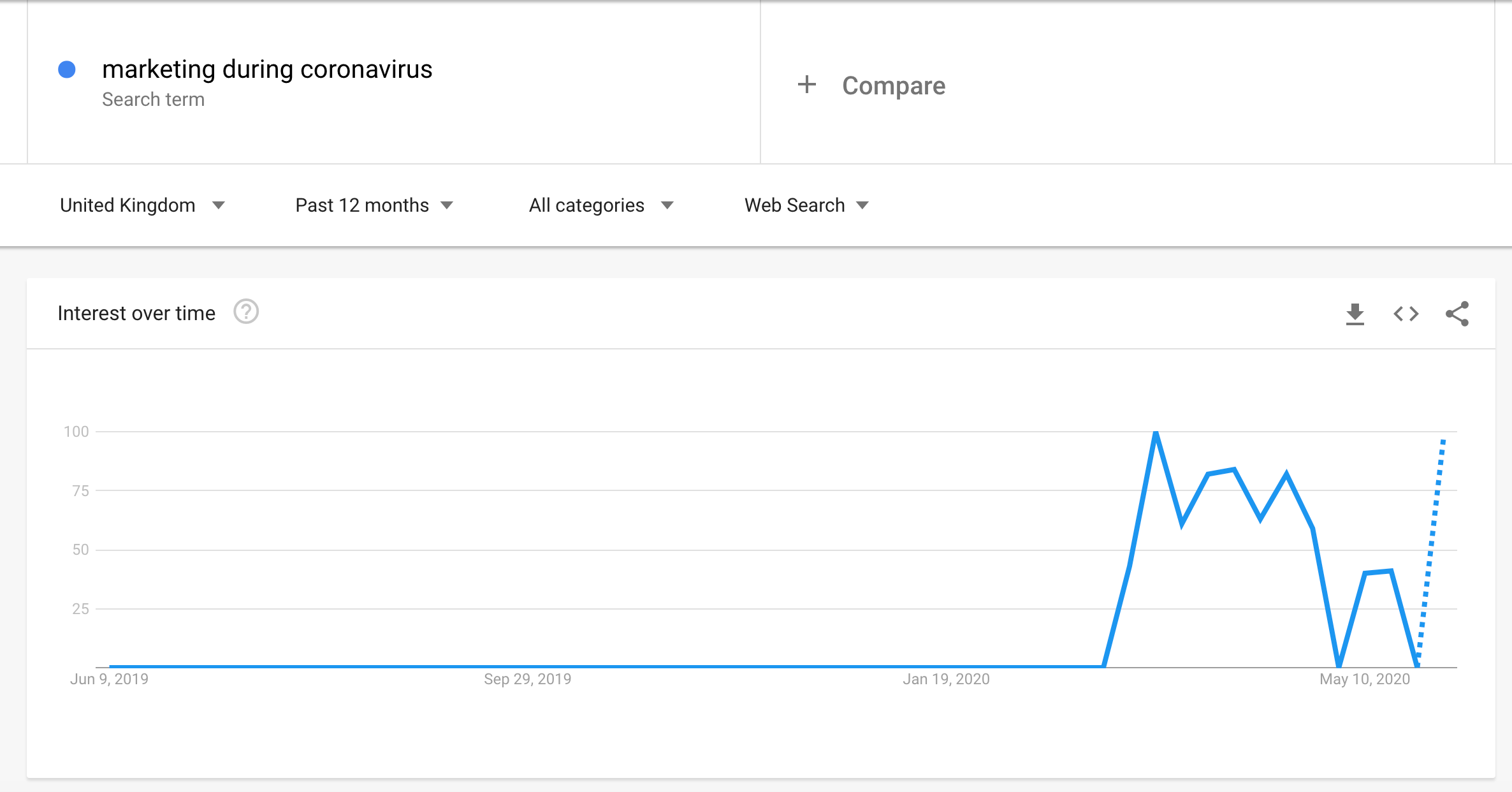5 ways to adapt marketing strategies during Covid-19
All businesses have had to adapt as a result of the Covid-19 pandemic. Working from home has become the norm, queueing to get into supermarkets is expected, and we’ve all become pros with Zoom. However, there’s still more work to be done. Especially when it comes to marketing during Coronavirus.
Here are 5 ways to adapt your marketing strategy during this global pandemic.
1. Adapt to consumer behaviour
It goes without saying that staying at home has altered customer behaviours. We are heavily relying on our devices for news, entertainment, socialising, as well as health and fitness. Needless to say that our daily screen time is through the roof. In terms of digital marketing, people are spending more time online than ever before, so this presents a great marketing opportunity.
“Consumers across the globe are downloading and spending 20% more time using apps than they did a year ago” — App Annie
If your current marketing strategy is based on one platform, e.g Google Ads, this is the time to try out new things. Perhaps social media campaigns? With more time spent on our devices, there’s a broader timeframe for your adverts to reach potential consumers. You can even change the times your adverts are shown for super targeted marketing.
1.1 Think about the customer journey
Much like the consumer’s behaviour, the customer journey will undoubtedly change. And it’s up to you as a business to monitor and adapt to these changes. Adjusting your Customer Relationship Management (CRM) strategy can mean re-thinking your audience, optimising their experience and carefully considering your content.
It’s a difficult time for everyone. We’re currently living in an environment where things are changing daily, so here are some ways we can be more flexible to help our customers:
- Be compassionate – support your customers/clients rather than pushing sales or marketing efforts.
- Speak to them at home – messaging needs to shift from outdoor/in-store to online. Similarly, if you’re selling physical products, you’ll need to think about how to deliver them safely. You might need to expand your home delivery options.
- Think about the future – there’s no question that this global pandemic has had an impact on the economy. As a B2B, think about how to help your customers cut costs e.g. shift marketing budget to digital channels. Additionally, as a retailer with a physical shop, you’ll need to think about necessary changes to help with social distancing.
- Listen to your customers – use social media platforms to understand the changes in customer behaviour, as well as new pain points. This will help you further adapt your customer journey during/beyond the pandemic.
2. Audit future marketing campaigns
You’re probably already familiar with campaign audits, but next time you launch a campaign, it’s important to bear the coronavirus outbreak in mind. There’s a risk you could have marketing messages which unintentionally appear insensitive towards the current situation, or ads promoting ‘in-store only’ deals. Perhaps this is a good time to review marketing budgets and allocate new campaigns that work alongside the current climate?
3. Keep customers in the loop
In a world of mobile devices and internet, people like to have instant access to information – and this has only intensified during this time of uncertainty. People want the facts. And they want them now. In the retail industry it’s especially important to have products and services that are as up-to-date as possible.
The same goes for business status, always let your customers know what you are doing and when. You can do this via your website, emails, Google My Business, or even personalised messages in your marketing campaigns. From a digital marketing perspective, we’ve found that simple copy tweaks have more than doubled the click-through rate for some search ads.

4. Utilise online tools
There are many free online tools that can help you understand what your customers are looking for, which will then help inform your marketing strategy. These include:
- Shopping insights – a tool to help you understand what people are searching for in your category
- Google trends – analyse the popularity of top search queries
- Google Analytics – see exactly how customers are behaving on your website and use this information to decide how you organise categories
- Rising retail categories – understand fast-rising retail categories in Google
5. Help your customers
No matter what your company does, there are always small ways you can help. Short term changes can have big impacts on customer retention in the long term, so it’s definitely worth thinking about.
“More than half of global enterprises (52%) report changing customer policies regarding things like cancellation terms, or by waiving fees; just under half (48%) also report having changed their policies for vendors, by extending timelines or terms of payment. This is up from 24% and 22%, respectively, two weeks ago.”
Ever the optimists, we like to look at the positives. And if there’s one good thing to come from the coronavirus pandemic it’s the sense of community that’s developed. From neighbourly goodwill gestures, to businesses helping their customers through hard times, lots of people have made a difference to those around them – perhaps without even realising.
If you need help adapting your marketing strategy during this difficult time, get in touch with our Managing Partner, Ian Reeves.
